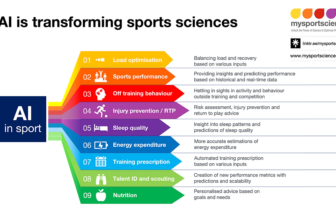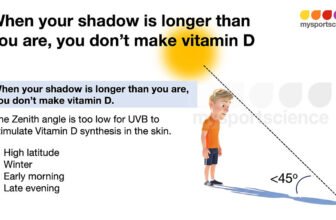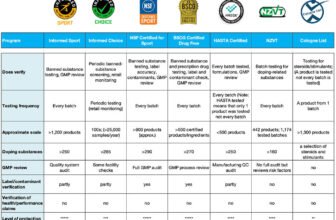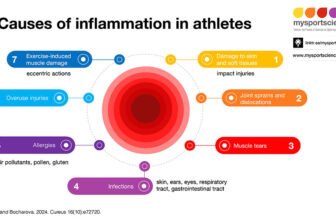The query of whether or not gentle dehydration (~2-3% physique mass loss) actually impacts athletic efficiency is essential. Whereas a number of research point out that dehydration impairs varied features of efficiency, the methodologies employed could introduce confounding variables (e.g. lack of blinding). As well as, analysis predominantly involving males raises questions round hydration suggestions for females, with proof exhibiting attainable variations in sweating charges and sodium concentrations. This blogs outlines necessary issues for measuring the impact of dehydration on efficiency, with consideration for attainable intercourse variations in hydration suggestions.
Dehydration and athletic efficiency
Whether or not dehydration impacts athletic efficiency is without doubt one of the oldest questions in sport vitamin, with research relationship again to the early twentieth century, however scientific debate persists as we speak (1,2). A lot of this debate is focussed on ingesting pointers for train, with two broad approaches rising. Firstly, deliberate, or programmed ingesting, the place athletes drink set quantities of fluid at set occasions, and secondly, drink-to-thirst or ad-libitum ingesting, the place athletes drink when thirsty or when they need. Maybe extra basic, is the query of whether or not dehydration, at the least gentle dehydration generally skilled by athletes (~2-3% physique mass) actually impairs efficiency. Quite a few research recommend dehydration impairs varied performances (cardio, cognitive, talent, power, energy), however the strategies used might probably confound outcomes (3). Research have historically not blinded contributors, that means their notion of how dehydration might affect outcomes could confound outcomes, significantly as athletes typically understand dehydration to impair efficiency (4). This lack of blinding could be a cardinal sin in different areas of sport vitamin and certain preclude publication in respected journals, however this isn’t the case for hydration analysis.
Challenges blinding in hydration research
However how do you make somebody drink with out them realizing they’re ingesting?! Not too long ago, research have tackled this by supply (or dummy supply) of water into the abdomen by way of a gastric feeding tube throughout train (5,6,7). These research mimic the physiological and perceptual response to dehydration and euhydration and present that dehydration reduces cardio efficiency. Funnell et al. (7) demonstrated that the efficiency decline with blinded dehydration (~11% impairment) was not completely different from when contributors weren’t blinded (~10% impairment). Importantly, this means earlier analysis will not be confounded by the shortage of examine blinding. Different research have infused isotonic saline into the blood to blind dehydration and report dehydration doesn’t impair cardio efficiency (8,9). Nonetheless, infusing isotonic saline intravenously doesn’t supress blood plasma/serum osmolality (the primary regulatory fluid steadiness sign), that means dehydrated/hydrated trials each have important elevations (internally sensed as dehydration in each circumstances), probably explaining the outcomes
Funnell et al. (7) demonstrated that the efficiency decline with blinded dehydration (~11% impairment) was not completely different from when contributors weren’t blinded (~10% impairment).
While this rising proof, suggests dehydration does impair cardio efficiency, there stay massive gaps in our data. Firstly, blinded research have solely examined endurance biking within the warmth, which seems to be extra delicate to the results of dehydration than biking in cooler environments (10) and in comparison with operating (11,12). Thus, different environmental circumstances, train modes, and efficiency outcomes (cognitive, talent, power, energy and so forth.) must be studied in a blinded method. Moreover, these blinded research solely embody males, that means the true impact of dehydration in females is much less clear, and, curiously, solely 30% of hydration research have included females (13). Important dehydration is much less frequent in females, even at an elite degree (14,15), and analysis demonstrates decrease sweating charge capability and sweat sodium concentrations for females in comparison with males, probably attributable to variations in workload/physique mass (16,17). Concerning menstrual cycle results, in the course of the luteal part, the osmotic threshold for thirst sensation and vasopressin launch are decreased, probably attributable to elevated circulating oestrogen (18), however cycle part doesn’t affect ad-libitum rehydration, general fluid steadiness, or fluid retention (19). Regardless of these intercourse results, females current comparable efficiency responses to dehydration in contrast with males, with impairments to endurance, cognitive and expertise efficiency reported, at the least with unblinded dehydration. Clearly, nonetheless, extra analysis is required to know female-specific results.
Hydration methods for female and male athletes
Hydration methods for female and male athletes, must be personalised and designed based mostly on the person’s sweat losses, train depth and environmental circumstances to keep away from important dehydration creating (>2% physique mass) and to stop over-drinking, each of which can affect the efficiency or well being of athletes. Train sweat responses (charge and electrolyte composition) are extremely variable between completely different athletes, in addition to inside the similar athlete for various coaching periods, making one-size-fits-all approaches to hydration inappropriate. Relying on the anticipated sweat charge and train period, this may increasingly allow a ‘drink-to-thirst’ strategy or could demand a ‘deliberate ingesting’ strategy. Ingesting quicker than sweat charge (over-drinking) must be averted because it will increase the chance of exercise-associated hyponatremia and it must be famous that smaller athletes and/or these with slower sweat charges could also be at higher danger, which could, on common, enhance the chance in females (20).
Giant intra- and inter-individual variability in train sweat responses (charge and electrolyte composition) make a one-size-fits-all strategy to hydration inappropriate.
Abstract
In conclusion, rising proof utilizing up to date strategies to blind dehydration from athletes exhibits that dehydration impairs cardio biking efficiency within the warmth in males, however future work is required to corroborate (or refute) the outcomes of unblinded research in different settings, together with an pressing want for analysis in females, the place intercourse distinction and menstrual cycle results for some related hydration-related outcomes are noticed
Dwell webinar recording – "What's new in hydration?" with Dr Lewis James and Dr Nidia Rodriguez-Sanchez- out there on mysportscience academy…
References
-
Does dehydration impair train efficiency? Sawka MN, Noakes TD. Med Sci Sports activities Exerc. 2007 Aug;39(8):1209-17. doi: 10.1249/mss.0b013e318124a664.
-
Are we being drowned in hydration recommendation? Thirsty for extra? Cotter JD, Thornton SN, Lee JK, Laursen PB. Extrem Physiol Med. 2014 Oct 29;3:18. doi: 10.1186/2046-7648-3-18.
-
Does Hypohydration Actually Impair Endurance Efficiency? Methodological Concerns for Decoding Hydration Analysis. James LJ, Funnell MP, James RM, Mears SA. Sports activities Med. 2019 Dec;49(Suppl 2):103-114. doi: 10.1007/s40279-019-01188-5.
-
Information, attitudes, and behaviors concerning hydration and fluid substitute of collegiate athletes. Nichols PE, Jonnalagadda SS, Rosenbloom CA, Trinkaus M. Int J Sport Nutr Exerc Metab. 2005 Oct;15(5):515-27. doi: 10.1123/ijsnem.15.5.515.
-
Hypohydration impairs endurance efficiency: a blinded examine. James LJ, Moss J, Henry J, Papadopoulou C, Mears SA. Physiol Rep. 2017 Jun;5(12):e13315. doi: 10.14814/phy2.13315.
-
Dehydration Impairs Biking Efficiency, Independently of Thirst: A Blinded Examine. Adams JD, Sekiguchi Y, Suh HG, Seal AD, Sprong CA, Kirkland TW, Kavouras SA. Med Sci Sports activities Exerc. 2018 Aug;50(8):1697-1703. doi: 10.1249/MSS.0000000000001597.
-
Blinded and unblinded hypohydration equally impair biking time trial efficiency within the warmth in skilled cyclists. Funnell MP, Mears SA, Bergin-Taylor Okay, James LJ. J Appl Physiol (1985). 2019 Apr 1;126(4):870-879. doi: 10.1152/japplphysiol.01026.2018.
-
Present hydration pointers are faulty: dehydration doesn’t impair train efficiency within the warmth. Wall BA, Watson G, Peiffer JJ, Abbiss CR, Siegel R, Laursen PB. Br J Sports activities Med. 2015 Aug;49(16):1077-83. doi: 10.1136/bjsports-2013-092417.
-
Separate and mixed results of dehydration and thirst sensation on train efficiency within the warmth. Cheung SS, McGarr GW, Mallette MM, Wallace PJ, Watson CL, Kim IM, Greenway MJ. Scand J Med Sci Sports activities. 2015 Jun;25 Suppl 1:104-11. doi: 10.1111/sms.12343.
-
Hypohydration impairs endurance train efficiency in temperate however not chilly air. Cheuvront SN, Carter R third, Castellani JW, Sawka MN. J Appl Physiol (1985). 2005 Nov;99(5):1972-6. doi: 10.1152/japplphysiol.00329.2005.
-
Half-marathon operating efficiency will not be improved by a charge of fluid consumption above that dictated by thirst sensation in skilled distance runners. Dion T, Savoie FA, Asselin A, Gariepy C, Goulet ED. Eur J Appl Physiol. 2013 Dec;113(12):3011-20. doi: 10.1007/s00421-013-2730-8.
-
Programmed vs. Thirst-Pushed Ingesting throughout Extended Biking in a Heat Setting. Jeker D, Claveau P, Abed MEF, Deshayes TA, Lajoie C, Gendron P, Hoffman MD, Goulet EDB. Vitamins. 2021 Dec 29;14(1):141. doi: 10.3390/nu14010141.
-
Fluid Steadiness in Staff Sport Athletes and the Impact of Hypohydration on Cognitive, Technical, and Bodily Efficiency. Nuccio RP, Barnes KA, Carter JM, Baker LB. Sports activities Med. 2017 Oct;47(10):1951-1982. doi: 10.1007/s40279-017-0738-7.
-
Intercourse variations in voluntary fluid consumption by older adults throughout train. Baker LB, Munce TA, Kenney WL. Med Sci Sports activities Exerc. 2005 Might;37(5):789-96. doi: 10.1249/01.mss.0000162622.78487.9c.
-
Hydration and cooling in elite athletes: relationship with efficiency, physique mass loss and physique temperatures in the course of the Doha 2019 IAAF World Athletics Championships. Racinais S, Ihsan M, Taylor L, Cardinale M, Adami PE, Alonso JM, Bouscaren N, Buitrago S, Esh CJ, Gomez-Ezeiza J, Garrandes F, Havenith G, Labidi M, Lange G, Lloyd A, Moussay S, Mtibaa Okay, Townsend N, Wilson MG, Bermon S. Br J Sports activities Med. 2021 Dec;55(23):1335-1341. doi: 10.1136/bjsports-2020-103613.
-
Physiological responses of women and men to humid and dry warmth. Shapiro Y, Pandolf KB, Avellini BA, Pimental NA, Goldman RF. J Appl Physiol Respir Environ Exerc Physiol. 1980 Jul;49(1):1-8. doi: 10.1152/jappl.1980.49.1.1.
-
Intercourse Variations in Human Thermoregulation: Relevance for 2020 and Past. Yanovich R, Ketko I, Charkoudian N. Physiology (Bethesda). 2020 Might 1;35(3):177-184. doi: 10.1152/physiol.00035.2019.
-
Results of oral contraceptives on physique fluid regulation. Stachenfeld NS, Silva C, Keefe DL, Kokoszka CA, Nadel ER. J Appl Physiol (1985). 1999 Sep;87(3):1016-25. doi: 10.1152/jappl.1999.87.3.1016.
-
Fluid and electrolyte steadiness issues for feminine athletes. Rodriguez-Giustiniani P, Rodriguez-Sanchez N, Galloway SDR. Eur J Sport Sci. 2022 Might;22(5):697-708. doi: 10.1080/17461391.2021.1939428.
-
Train-Related Hyponatremia: 2017 Replace. Hew-Butler T, Loi V, Pani A, Rosner MH. Entrance Med (Lausanne). 2017 Mar 3;4:21. doi: 10.3389/fmed.2017.00021.
Trending Merchandise




